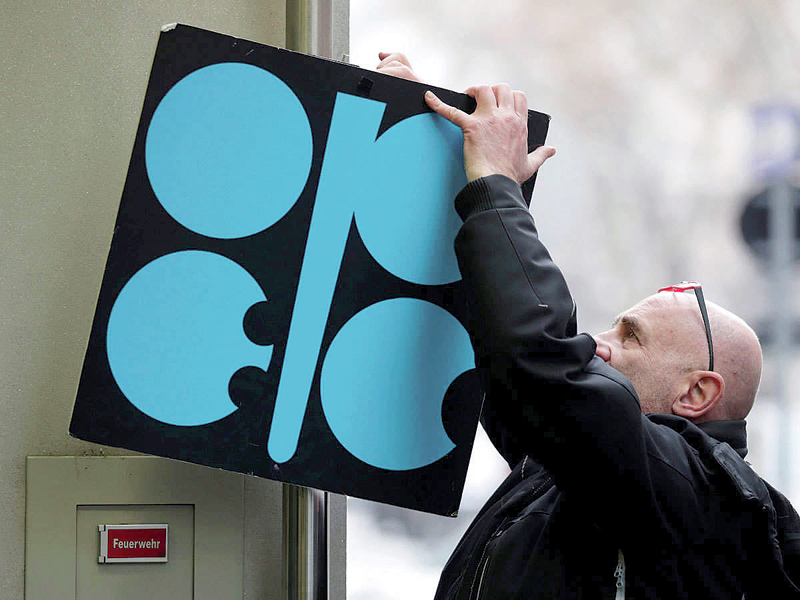

Poor old Opec. The 13-strong producers club that controls a third of global oil supply meets this week to try to prop up prices smashed by a coronavirus-led demand slump. Good luck with that.
The Organization of the Petroleum Exporting Countries’ chief goal when it meets in Vienna will be to soak up excess oil supply, and thus raise prices, which have fallen by 20 per cent since January. Before the virus emerged, year-on-year demand for oil was expected to rise in the first quarter by at least 1 million barrels per day (bpd). The scale of the slowdown in China has turned that into a 200,000 bpd decline, according to consultancy Rystad Energy. It forecasts millions of barrels of spare capacity this month.
Crude prices have risen 5 per cent this week. That’s partly because of stimulus noises from central banks, but it’s also because Opec’s de facto leader Saudi Arabia is proposing a 1 million bpd cut on top of the 2.1 million bpd already agreed with allies like Russia in December, when concerns about a weak economy depressed prices.
That would take Opec’s estimated production for the second quarter down to around 28 million bpd, substantially below the 28.9 million bpd that was needed to balance global demand and supply in the fourth quarter.
Trouble is, the impact of the virus means the level at which supply balances demand, and thus Opec’s required output, has fallen to 27.7 million bpd, Rystad Energy reckons. The only way to get to that level — other than via an even bigger cut than 1 million bpd — is to hope for help from Libya. A civil war there saw December production of 1.2 million bpd slump to 115,000 bpd in February. If it stays low, Opec’s production would drop nearer to 27 million bpd, balancing the market.
Saudi can’t bank on that happening, though. Neither can it be certain that Russia will agree to a 1 million bpd cut. Whereas Riyadh needs an oil price of over $70 a barrel to balance its budget, Moscow’s fiscal break-even level is probably less than $50 a barrel, making the current price implosion less damaging, and the need to perk up prices less intense. Looming over all these problems, though, is the coronavirus itself. If it continues to spread beyond China, the global economy will suffer, and demand for oil will collapse.
Opec would then have to let its production fall further — or give up and let prices do so. — Reuters
Oman Observer is now on the WhatsApp channel. Click here



